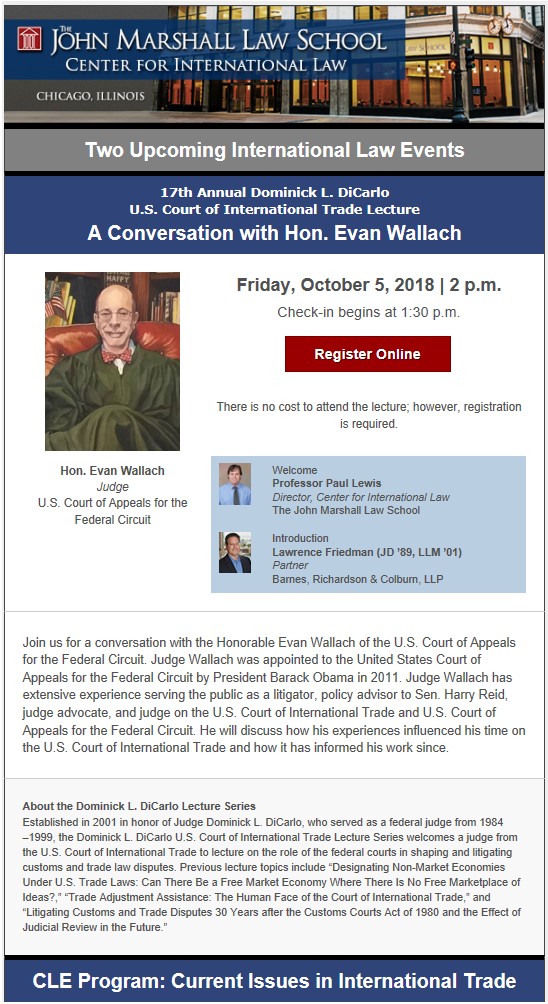Reflecting on 2018
This will be the last post of 2018. It was not a good year for the Customs Law Blog. It was a good and difficult year for customs lawyers and equally so for importers. 2018 gave us 232 duties on steel and aluminum products and a poorly implemented exclusion process. We also saw 301 duties imposed on billions of dollars of goods imported from China, plus a slightly better exclusion process. To make the year just that much more unpredictable, importers and exporters faced numerous threats by the US to withdraw from NAFTA and the release of the text of a substantially new North American free trade deal. All of that, and other factors, kept me from being able to update the blog as often or as substantively as I would have hoped. I hope you are all reading my Twitter feed to keep up with me and my short updates. I am forever grateful to the readers of this blog. I appreciate your feedback and hope to continue to have opportunities to meet in real life at trade events throughout the year...
